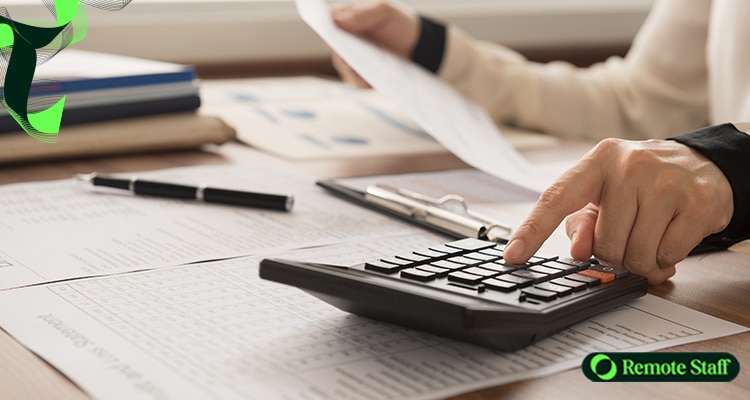Accounting plays a vital role in the success of any business.
Done right, it helps companies stay on top of their finances, enabling them to take advantage of opportunities and ride out challenges.
However, that’s easier said than done. Most entrepreneurs hate doing their accounting because of their lack of knowledge or experience.
Fortunately, there are ways to make accounting more manageable – even for beginners. Let’s take a look.
Why Is Accounting Stressful?

Accounting can be taxing (no pun intended) for many reasons. These include:
- Tight Deadlines. There are strict deadlines to follow, especially during tax season or year-end.
- Financial Accuracy. You also have to avoid, or at least minimise, accounting errors to prevent significant financial repercussions.
- Changing Regulations. Tax laws and accounting principles can be confusing due to regular updates and changes.
- New Technology. There is always new accounting software to learn, requiring businesses to upgrade to stay updated.
- Time Consuming. Overall, accounting tasks are tedious, resulting in longer hours and additional stress.
Taking the Stress Out of Accounting

Accounting has its challenges. However, there are also proven and tested ways to make it manageable. Here are five of them:
1. Categorise Your Transactions.

Accounting won’t be as overwhelming if you identify and categorise your transactions into different sections such as:
- Income. These include sales, interest, dividends, salaries, royalties, rentals, and other receivables.
- Expenses. You also have to identify your utilities, rent, loans, employee salary, taxes, production costs, operation expenses, and other payables.
- Assets. There’s also a need to categorise your cash, inventory, equipment, vehicles, real properties, and other assets.
- Other Categories. Lastly, list down all the other overhead costs that don’t fall into the other categories.
2. Reconcile Your Accounts Regularly.

Don’t let your transactions pile up.
Ideally, you should track them weekly. You can also rely on mobile banking apps to help track receipts.
Moreover, regularly compare your bank or credit card statements with your accounting records. Make sure everything is accurate and updated.
3. Automate What You Can.

It also helps to set up automatic bill payments to avoid penalties and late payments.
There’s even the option to integrate your bank account with accounting software to automate important transactions.
4. Educate Yourself.

Accounting can be intimidating, especially if you’re not an accountant by training.
Fortunately, there are many online resources available to guide you with the basics. They can also familiarise you with accounting terms and practices.
5. Ask for Help.

More importantly, don’t hesitate to ask for help.
In fact, many Australian SMEs and entrepreneurs outsource accounting tasks to Remote Staff. These may include:
- Bookkeeping
- Payroll Processing
- Tax Preparation and Filing
- Financial Statement Preparation
- Accounts Receivable Management
- Financial Reporting and Analysis
Delegating these tasks frees up your valuable time, allowing you to focus on core business activities.
More importantly, professional accountants can help you minimise errors, resulting in more accurate and strategic financial planning.
It’s time to take your accounting to the next level – without the hassle. Call us today or request a call back now.
Syrine is studying law while working as a content writer. When she’s not writing or studying, she engages in tutoring, events planning, and social media browsing. In 2021, she published her book, Stellar Thoughts.




















